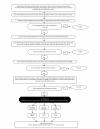Staying well after depression: trial design and protocol
- PMID: 20302615
- PMCID: PMC2859374
- DOI: 10.1186/1471-244X-10-23
Staying well after depression: trial design and protocol
Abstract
Background: Depression is often a chronic relapsing condition, with relapse rates of 50-80% in those who have been depressed before. This is particularly problematic for those who become suicidal when depressed since habitual recurrence of suicidal thoughts increases likelihood of further acute suicidal episodes. Therefore the question how to prevent relapse is of particular urgency in this group.
Methods/design: This trial compares Mindfulness-Based Cognitive Therapy (MBCT), a novel form of treatment combining mindfulness meditation and cognitive therapy for depression, with both Cognitive Psycho-Education (CPE), an equally plausible cognitive treatment but without meditation, and treatment as usual (TAU). It will test whether MBCT reduces the risk of relapse in recurrently depressed patients and the incidence of suicidal symptoms in those with a history of suicidality who do relapse. It recruits participants, screens them by telephone for main inclusion and exclusion criteria and, if they are eligible, invites them to a pre-treatment session to assess eligibility in more detail. This trial allocates eligible participants at random between MBCT and TAU, CPE and TAU, and TAU alone in a ratio of 2:2:1, stratified by presence of suicidal ideation or behaviour and current anti-depressant use. We aim to recruit sufficient participants to allow for retention of 300 following attrition. We deliver both active treatments in groups meeting for two hours every week for eight weeks. We shall estimate effects on rates of relapse and suicidal symptoms over 12 months following treatment and assess clinical status immediately after treatment, and three, six, nine and twelve months thereafter.
Discussion: This will be the first trial of MBCT to investigate whether MCBT is effective in preventing relapse to depression when compared with a control psychological treatment of equal plausibility; and to explore the use of MBCT for the most severe recurrent depression--that in people who become suicidal when depressed.
Figures
References
-
- Beautrais AL, Joyce PR, Mulder RT, Fergusson DM, Deavoll BJ, Nightingale SK. Prevalence and comorbidity of mental disorders in persons making serious suicide attempts: a case-control study. Am J Psychiatry. 1996;153(8):1009–1014. - PubMed
-
- Townsend E, Hawton K, Altman DG, Arensman E, Gunnell D, Hazell P, House A, Van Heeringen K. The efficacy of problem-solving treatments after deliberate self-harm: meta-analysis of randomized controlled trials with respect to depression, hopelessness and improvement in problems. Psychol Med. 2001;31(6):979–988. doi: 10.1017/S0033291701004238. - DOI - PubMed
-
- Segal ZV, Williams JMG, Teasdale JD. Mindfulness-based cognitive therapy for depression: A new approach to preventing relapse. New York, NY,: Guilford Press; 2002.
Publication types
MeSH terms
Associated data
Grants and funding
LinkOut - more resources
Full Text Sources
Research Materials
Miscellaneous


